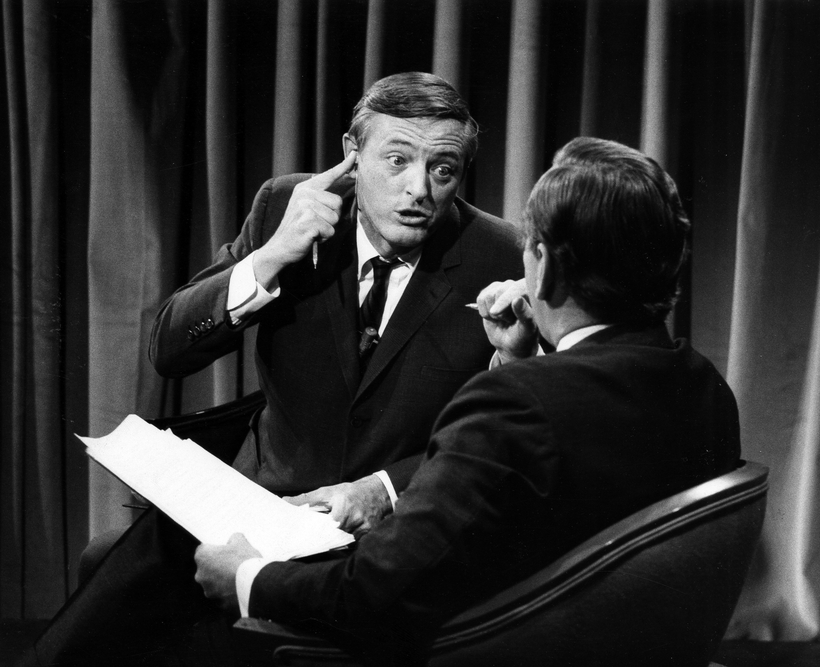Scorched-earth demagoguery in times of crisis is as old as time itself. The demeaning donnybrook of polarized pandemonium that chokes American politics today is something else again. If you wonder what landed us in this fine mess, a new hit play by England’s James Graham has a straight answer: television.
Captured live last May in London’s West End, Graham’s Best of Enemies turns back the clock to the tumultuous year of 1968, marked by the back-to-back assassinations of Martin Luther King Jr. and Bobby Kennedy. ABC, the 97-pound weakling among the three television networks then extant, had been anticipating the Republicans’ and Democrats’ national conventions with trepidation. In no financial position to compete with the gavel-to-gavel coverage of the heavyweight CBS and NBC, ABC cooked up an “unconventional” sideshow.

For perspective on each day’s issues, William F. Buckley Jr., editor of the archconservative National Review, would face off against the liberal provocateur Gore Vidal, whose transsexual satire Myra Breckinridge was dominating best-seller lists around the world. Top public intellectuals when that species still roamed the earth, wickedly quotable, they were also lifelong loathers of each other’s guts. To universal amazement, ABC’s ratings shot through the roof.
In color-blind casting, the beefy David Harewood, of Homeland fame, plays Buckley, the Catholic WASP. Gaunt, towering, and pale to the point of bloodlessness, Zachary Quinto’s Vidal bears a funereal likeness to Lurch, the butler in The Addams Family. They both slug hard, relentlessly.
As the PBS documentary that inspired Graham’s play reveals, the tone of the original broadcasts was not like this at all. First aired in 2015, Robert Gordon and Morgan Neville’s Best of Enemies (yes, Graham lifted the title, too) gives us two Zorros with a zinger, mischievous, nimble, blessed with lively, telegenic faces and winning smiles. They’re out for blood, yes, but please, with panache!

For glamour and cachet, the play features a supporting cast of celebrities (James Baldwin, Aretha Franklin, etc.). More importantly, it gives us Buckley and Vidal as bona fide dramatic characters, off camera, strategizing, brooding, and crowing in invented scenes with intimates, notably Buckley’s wife Pat, a showboat in her own right.
In the documentary, which is assembled from archival material, the long-dead headliners are always on camera, even—especially—in fake moments of staged introspection. For exegesis, there’s a carefully curated chorus of people who knew them, media historians, and other pundits (including AIR MAIL’s own James Wolcott).
In a coda to the debates on election night, Vidal mused, “I do now think that such debates are absolute nonsense. There’s also the terrible thing about this medium, that hardly anyone listens.” And Buckley added: “Does television run America? There is an implicit conflict of interest, between that which is highly viewable, and that which is highly illuminating. One thing we ought to attempt is to show how that moral arrogance which characterizes most units of our society today are [sic] going to make democracy impossible.”
James Graham’s play Best of Enemies is available for streaming on the National Theatre at Home Web site. The PBS documentary Best of Enemies is available for streaming on Amazon Prime
Matthew Gurewitsch writes about opera and classical music for AIR MAIL. He lives in Hawaii

